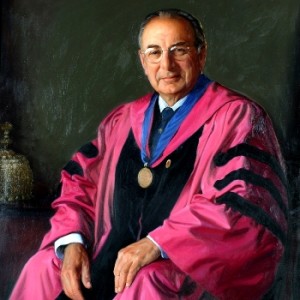The Ralph H. Hruban, M.D. Professorship in Pancreatic Cancer Research
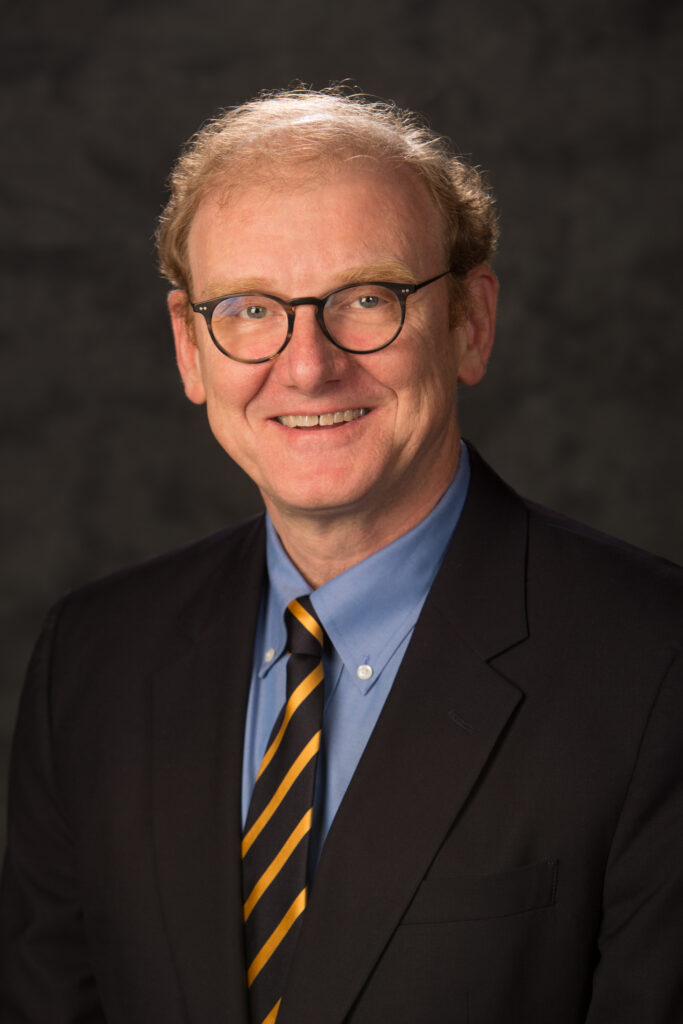 RALPH H. HRUBAN, M.D., an internationally recognized pathologist and pancreatic cancer researcher, was named the ninth Baxley Professor and Director of the Department of Pathology on July 1, 2015. A 1985 graduate of the Johns Hopkins School of Medicine, he completed his residency training at Johns Hopkins and a fellowship at Memorial Sloan Kettering Cancer Center before joining the Johns Hopkins Pathology faculty in 1990. Dr. Hruban has taken a collaborative approach to his research and, in 2013, 2017 and 2020, received the Team Science Award from the American Association for Cancer Research. His research has helped define and characterize the precursor lesions that give rise to invasive pancreatic cancer and has helped advance our understanding of why pancreatic cancer runs in some families. Dr. Hruban founded The National Familial Pancreas Tumor Registry at Johns Hopkins and has directed the Sol Goldman Pancreatic Cancer Research Center since its inception in 2005. The Goldman Center includes many of the world’s leading experts in pancreatic cancer and is where many of the fundamental genetic changes that drive pancreatic cancer have been discovered. In a career spanning nearly four decades, Dr. Hruban has received numerous awards for his work including the Ramzi S. Cotran Young Investigator Award for significant contributions to the diagnosis and understanding of human disease, the PanCAN Medical Visionary Award, the Arthur Purdy Stout Prize for significant career achievements in surgical pathology, the Ranice W. Crosby Distinguished Achievement Award for scholarly contributions to the advancement of art as applied to the medical sciences, the Fred W. Stewart Award for outstanding contributions in advancing our knowledge in human cancer, and the 2013 Johns Hopkins University Distinguished Alumni Award. In 2013, he was also elected a member of the German National Academy of Sciences Leopoldina. He has published more than 850 scientific papers and been recognized each of the last eight years by the Institute for Scientific Information as a highly cited researcher. Dr. Hruban has received five teaching awards from the Johns Hopkins University School of Medicine, including the Educational Innovation Award. He has written and edited 10 books. Dr. Hruban helped create the Johns Hopkins Pancreatic Cancer website, as well as an award-winning iPad application to teach pancreas pathology. In 2012, he received the Frank H. Netter Award for Special Contributions to Medical Education from the Association of Medical Illustrators. Truly passionate about Johns Hopkins Medicine and its history, in 2011, Dr. Hruban produced an award-winning documentary that aired on most PBS stations about the life of Dr. William Stewart Halsted, a surgeon and one of the original professors in the Johns Hopkins School of Medicine. His most recent book—A Scientific Revolution: Ten Men and Women Who Reinvented American Medicine.
RALPH H. HRUBAN, M.D., an internationally recognized pathologist and pancreatic cancer researcher, was named the ninth Baxley Professor and Director of the Department of Pathology on July 1, 2015. A 1985 graduate of the Johns Hopkins School of Medicine, he completed his residency training at Johns Hopkins and a fellowship at Memorial Sloan Kettering Cancer Center before joining the Johns Hopkins Pathology faculty in 1990. Dr. Hruban has taken a collaborative approach to his research and, in 2013, 2017 and 2020, received the Team Science Award from the American Association for Cancer Research. His research has helped define and characterize the precursor lesions that give rise to invasive pancreatic cancer and has helped advance our understanding of why pancreatic cancer runs in some families. Dr. Hruban founded The National Familial Pancreas Tumor Registry at Johns Hopkins and has directed the Sol Goldman Pancreatic Cancer Research Center since its inception in 2005. The Goldman Center includes many of the world’s leading experts in pancreatic cancer and is where many of the fundamental genetic changes that drive pancreatic cancer have been discovered. In a career spanning nearly four decades, Dr. Hruban has received numerous awards for his work including the Ramzi S. Cotran Young Investigator Award for significant contributions to the diagnosis and understanding of human disease, the PanCAN Medical Visionary Award, the Arthur Purdy Stout Prize for significant career achievements in surgical pathology, the Ranice W. Crosby Distinguished Achievement Award for scholarly contributions to the advancement of art as applied to the medical sciences, the Fred W. Stewart Award for outstanding contributions in advancing our knowledge in human cancer, and the 2013 Johns Hopkins University Distinguished Alumni Award. In 2013, he was also elected a member of the German National Academy of Sciences Leopoldina. He has published more than 850 scientific papers and been recognized each of the last eight years by the Institute for Scientific Information as a highly cited researcher. Dr. Hruban has received five teaching awards from the Johns Hopkins University School of Medicine, including the Educational Innovation Award. He has written and edited 10 books. Dr. Hruban helped create the Johns Hopkins Pancreatic Cancer website, as well as an award-winning iPad application to teach pancreas pathology. In 2012, he received the Frank H. Netter Award for Special Contributions to Medical Education from the Association of Medical Illustrators. Truly passionate about Johns Hopkins Medicine and its history, in 2011, Dr. Hruban produced an award-winning documentary that aired on most PBS stations about the life of Dr. William Stewart Halsted, a surgeon and one of the original professors in the Johns Hopkins School of Medicine. His most recent book—A Scientific Revolution: Ten Men and Women Who Reinvented American Medicine.
The Frank J. Frassica, M.D. Professorship in Orthopaedic Surgery
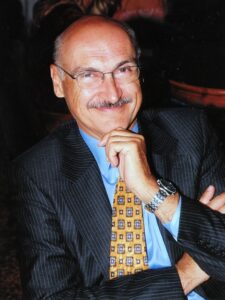 FRANK J. FRASSICA, M.D., graduated from the U.S. Naval Academy in 1975 and served aboard a guided missile destroyer, the USS Semmes (DDG18), for three years. While aboard, he qualified as a surface warfare officer, engineering officer of the watch, and a command duty officer. He completed medical school at the Medical University of South Carolina where he received the Herbert Ivy Valedictorian Award and Upjohn Achievement Award. He completed both his residency in orthopaedic surgery and his fellowship in orthopaedic oncology at the Mayo Clinic. Following graduation, he was assigned as a staff surgeon at Portsmouth Naval Hospital and was the director of the residency program for orthopaedic surgery. He was deployed to Fleet Hospital Five as the chief of orthopaedic surgery and the sub-specialty surgeons during the first gulf war (Operation Desert Shield/Storm).
FRANK J. FRASSICA, M.D., graduated from the U.S. Naval Academy in 1975 and served aboard a guided missile destroyer, the USS Semmes (DDG18), for three years. While aboard, he qualified as a surface warfare officer, engineering officer of the watch, and a command duty officer. He completed medical school at the Medical University of South Carolina where he received the Herbert Ivy Valedictorian Award and Upjohn Achievement Award. He completed both his residency in orthopaedic surgery and his fellowship in orthopaedic oncology at the Mayo Clinic. Following graduation, he was assigned as a staff surgeon at Portsmouth Naval Hospital and was the director of the residency program for orthopaedic surgery. He was deployed to Fleet Hospital Five as the chief of orthopaedic surgery and the sub-specialty surgeons during the first gulf war (Operation Desert Shield/Storm).
In 1992, Dr. Frassica left the Navy and joined the faculty at Johns Hopkins University where he rose to the rank of professor of orthopaedic surgery and oncology, and was the Director of the department for eleven years. He is an internationally recognized expert in bone and soft tissue tumors. He retired from Johns Hopkins University in 2014 and joined Medstar Health. He has published over 175 peer reviewed articles, three books and was deputy editor for oncology and basic science for the American Academy of Orthopaedic Surgeons Review Journal. Dr. Frassica is past president of the Musculoskeletal Tumor Society and was general secretary of the Limb Salvage Society.
He has received the Teacher of the Year Award at Johns Hopkins Hospital, MedStar Union Memorial Hospital, Portsmouth Naval Hospital, and the Mayo Clinic where he was named Teacher of Decade. He was selected as American Orthopaedic Association Distinguished Clinical Educator in 2006 by the Southern Orthopaedic Association. and was the director of the American Academy of Orthopaedic Surgeons Comprehensive Review Course for many years.
Elias A. Zerhouni, M.D. Professorship
 ELIAS A. ZERHOUNI, M.D., joined the Russell H. Morgan Department of Radiology and Radiological Science after earning his medical degree at the University of Algiers School Of Medicine in 1975. After completing his residency in diagnostic radiology at Johns Hopkins in 1978 and serving as chief-resident, he became an assistant professor before moving on to a position in the department of radiology at Eastern Virginia Medical School and its affiliated DePaul Hospital from 1981 to 1985. While there, he developed new methods of CT densitometry and high-resolution CT imaging of the lung while his wife Nadia completed her pediatric residency at the same institution.
ELIAS A. ZERHOUNI, M.D., joined the Russell H. Morgan Department of Radiology and Radiological Science after earning his medical degree at the University of Algiers School Of Medicine in 1975. After completing his residency in diagnostic radiology at Johns Hopkins in 1978 and serving as chief-resident, he became an assistant professor before moving on to a position in the department of radiology at Eastern Virginia Medical School and its affiliated DePaul Hospital from 1981 to 1985. While there, he developed new methods of CT densitometry and high-resolution CT imaging of the lung while his wife Nadia completed her pediatric residency at the same institution.
Dr. Zerhouni returned to Johns Hopkins as co-director of body CT and MRI and was promoted to associate professor in 1985.In 1988 he was appointed as Director of the Magnetic Resonance Imaging Division in 1988. In this role, he transformed the Division into a center of international excellence by ushering a multidisciplinary approach combining physical, biological and radiological sciences, which made the division a leader in the field with major NIH funding by developing novel techniques and quickly translating them into tools used to improve patient care. He contributed to developing fast MRI methods to image multiple pathologies such as cancer and cardiovascular diseases. He redefined functional cardiac imaging by developing a non-invasive tagging method for evaluating the motion of the beating heart. This effort brought together the skills and abilities of individuals across the Institution—from the basic scientists in biomedical, electrical and mechanical engineering to his clinical colleagues in cardiology.
In 1992, Dr. Zerhouni was promoted to the rank of professor. He was named the Martin Donner Professor and Chairman of the Russell H. Morgan Department of Radiology and Radiological Science at Johns Hopkins in 1996. In this role, he quickly identified areas of synergy between the basic sciences, clinical medicine and imaging. He facilitated the development of numerous areas of excellence in the Department—including CT, MRI, functional neuroimaging, endovascular imaging, molecular imaging and minimal invasive interventions. He reinvigorated the nuclear medicine division and the entire research base of the department. He also led the creation of a regional Radiology system, which allowed Hopkins Radiology to enter the outpatient imaging services across the region. He also transformed the management of the department emphasizing quantitation and alignment of risk, reward and control encouraging faculty to adopt modern management methods by delegating more responsibilities to the divisions of the department thus encouraging the development of multiple faculty members who have then taken leadership roles around the country.
While Chair of the Department, Dr. Zerhouni held concurrent leadership roles at Johns Hopkins, including Executive Vice Dean, President of the Clinical Practice Association and Vice Dean for Research under Dean Miller. In each role, his vision and ability to bring together new insights and strategies with the best of the best was manifested. He directed the reconfiguration of the Clinical Practice Association incorporating new management with novel strategies that enhanced performance of all the clinical departments. Dr. Zerhouni also helped create a multidisciplinary Institute for Cell Engineering in which the treatment of disease is being completely redefined and encouraged the formation of interdepartmental institutes such as the Basic Sciences Institute and the Genomic Medicine Institute to reflect the profound changes in the way research was conducted. He strived to remove barriers to collaboration between all departments across the university form the physical to the biomedical sciences.
In 2002, Dr. Zerhouni left Hopkins to take a national leadership role in when he was appointed as the 15th Director of the National Institutes of Health (NIH) by President George W. Bush. During his tenure from 2002 to 2008, Dr. Zerhouni applied his learnings from Johns Hopkins and embarked on a profound reform of the way research was conducted and funded in the country by launching a “Roadmap for Medical Research in the 21st Century” in 2003 identifying opportunities and gaps in biomedical research that no single institute at NIH could undertake but that the entire NIH needed to address. He created new grant mechanisms to support more creative research especially for young investigators such as the Pioneer and New Innovator Awards. His novel approach received bi-partisan support in the US Congress, which led to the passing of the NIH Reform Act of 2006 that institutionalized his approach that still governs how the NIH functions today. In 2009, he became a senior fellow at the Bill and Melinda Gates foundation for global health research and concurrently served as one of the country’s first presidential science envoys under the Obama administration to foster scientific and technological collaboration with other nations. Starting in 2011, he held the position of President for Global Research and Development at French pharmaceutical company Sanofi, until his retirement in 2018.
Dr. Zerhouni has received numerous marks of recognition and multiple awards. He is a member of the Academy of Medicine and the Academy of Engineering.
Dr. Zerhouni is married to Nadia A. Zerhouni, M.D., a retired Pediatric Endocrinologist who served on the Johns Hopkins faculty until 2016. They have three children: William, Yasmin, and Adam.
Elliot K. Fishman, M.D. Professorship in Radiology
The Elliot K. Fishman, M.D. Professorship in Radiology was endowed in 2018 by multiple donors in honor of Elliott K. Fishman.
D. William Schlott, MD, Professorship in Clinical Medicine
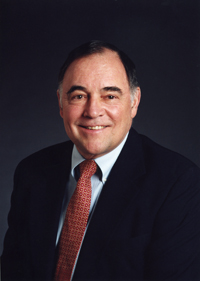 D. WILLIAM SCHLOTT, MD, is the former Philip A. Tumulty Associate Professor of Medicine, Division of General Internal Medicine, Johns Hopkins University School of Medicine. He was the first to hold the Tumulty chair. He has spent his fifty-plus year career at Hopkins: as a medical student, an intern and resident on the Osler Medical Service, and a faculty member in the Division of General Internal Medicine. For more than a decade he has served as the co-director of the Philip A. Tumulty Topics in Clinical Medicine, Hopkins’ week-long CME course in general internal medicine that annually attracts 300 registrants from around the world. In 1999, the American College of Physicians Maryland chapter honored him with the Theodore E. Woodward Award for Excellence in Medical Education and Research. He received both the Department of Medicine Chairman’s and the Osler Housestaff Outstanding Teacher Awards. Dr. Schlott received the Distinguished Alumni Award from Ohio University and in 2006, he was elected to Mastership in the American College of Physicians. In 2001, Johns Hopkins established the D. William Schlott Professorship in Clinical Medicine, unique to this institution in that it was established before Dr. Schlott’s retirement. He has been a visiting professor or invited lecturer in seven European and Asian countries.
D. WILLIAM SCHLOTT, MD, is the former Philip A. Tumulty Associate Professor of Medicine, Division of General Internal Medicine, Johns Hopkins University School of Medicine. He was the first to hold the Tumulty chair. He has spent his fifty-plus year career at Hopkins: as a medical student, an intern and resident on the Osler Medical Service, and a faculty member in the Division of General Internal Medicine. For more than a decade he has served as the co-director of the Philip A. Tumulty Topics in Clinical Medicine, Hopkins’ week-long CME course in general internal medicine that annually attracts 300 registrants from around the world. In 1999, the American College of Physicians Maryland chapter honored him with the Theodore E. Woodward Award for Excellence in Medical Education and Research. He received both the Department of Medicine Chairman’s and the Osler Housestaff Outstanding Teacher Awards. Dr. Schlott received the Distinguished Alumni Award from Ohio University and in 2006, he was elected to Mastership in the American College of Physicians. In 2001, Johns Hopkins established the D. William Schlott Professorship in Clinical Medicine, unique to this institution in that it was established before Dr. Schlott’s retirement. He has been a visiting professor or invited lecturer in seven European and Asian countries.
Philip Franklin Wagley Chair in Biomedical Ethics
Dr. PHILIP FRANKLIN WAGLEY was a prominent Baltimore internist who created and taught a highly regarded course in medical ethics at the Johns Hopkins School of Medicine. The course, which Dr. Wagley taught for 11 years before retiring in 1987, helped medical students identify and resolve such ethical problems in medicine as AIDS, abortion, health care for the elderly and health care costs. Dr. Wagley broadened the discussion of these issues by bringing lawyers, theologians, philosophers and other physicians to the class. In recognition of his pioneering efforts and commitment in the field of medical ethics, the Johns Hopkins Medical Institutions, with donations from Harvey Meyerhoff and family and friends of Dr. Wagley, established the Philip Franklin Wagley Chair in Medical Ethics in 1995.
W. Richard Green Professorship of Ophthalmology
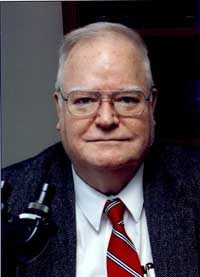 W. RICHARD GREEN, recognized internationally as one of the world’s foremost ophthalmic pathologists, joined the Wilmer Eye Institute in 1968. From 1989-2006 he held the Independent Order of Odd Fellows Professorship. He produced more than 700 publications, had board certification in both ophthalmology and pathology, and served as president of the American Ophthalmologic Society and the American Association of Ophthalmic Pathologists. Dr. Green received more than 25 national awards and, at Hopkins, he was honored with numerous teaching awards as well as the perpetual designation of his laboratory as the “W. Richard Green Eye Pathology Laboratory.” Dr. Green died in 2010.
W. RICHARD GREEN, recognized internationally as one of the world’s foremost ophthalmic pathologists, joined the Wilmer Eye Institute in 1968. From 1989-2006 he held the Independent Order of Odd Fellows Professorship. He produced more than 700 publications, had board certification in both ophthalmology and pathology, and served as president of the American Ophthalmologic Society and the American Association of Ophthalmic Pathologists. Dr. Green received more than 25 national awards and, at Hopkins, he was honored with numerous teaching awards as well as the perpetual designation of his laboratory as the “W. Richard Green Eye Pathology Laboratory.” Dr. Green died in 2010.
“Dr. Green leaves a tremendous legacy to ophthalmology that is an inspiration to me and many future generations of ophthalmologists and scientists.” – Richard D. Semba
Morton F. Goldberg Professorship in Ophthalmology
MORTON F. GOLDBERG, MD, FACS, is the Joseph E. Green Professor of Ophthalmology and director emeritus at the Wilmer Eye Institute of the Johns Hopkins University School of Medicine and Hospital in Baltimore. From 1989-2003, he served as the director and William Holland Wilmer Professor of Ophthalmology at the Wilmer Eye Institute. He received his AB and MD degrees with honors from Harvard College and Harvard Medical School respectively and completed an ophthalmic residency and chief residency at Wilmer, followed by a medical genetics fellowship with Professor Victor McKusick. In 1970, at the age of 32, Dr. Goldberg became professor and chairman of ophthalmology at the University of Illinois College of Medicine in Chicago. He returned to Wilmer in 1989 as director.
Dr. Goldberg’s major interests include vascular retinal diseases, including sickle cell eye disease, incontinentia pigmenti, and diabetes. He has authored and edited 10 books and over 500 scientific and clinical publications. He has served as president of the Macula Society, the Association for Research in Vision and Ophthalmology, and the Association of University Professors in Ophthalmology. He also served for ten years as editor of the Archives of Ophthalmology.
His awards include membership in the Institute of Medicine (National Academy of Medicine), the Howe Medal of the American Ophthalmological Society, an honorary MD degree from the University of Coimbra in Portugal, and an Honorary Fellowship in the Royal Australian College of Ophthalmologists. In 1999, Ophthalmology Times selected him as one of the 10 Greatest Living Ophthalmologists. He is the recipient of the Ida Mann Medal of Oxford University, the Isaac Michaelson Medal of the Israel Academy of Natural Sciences, the David Paton Medal of Baylor University, the Weisenfeld Prize of ARVO, and the Arnall Patz Medal of the Macula Society.
Dr. Goldberg currently serves as chairman of the board of the Clinical Research Institute of the Foundation Fighting Blindness, Inc., a member of the board of directors of EyeGate Pharmaceuticals, Inc., and a trustee of the RYR-1 Foundation, which he co-founded.
During his time as director of Wilmer, Dr. Goldberg inspired the excellence of Wilmer physicians, scientists, nurses, administrators, and staff, as well as the generosity of Wilmer’s alumni and friends. His tenure saw Wilmer consistently serve as the leading recipient of NIH funding for ophthalmic research.
Recognizing the freedom that philanthropic support provided faculty at Wilmer, Dr. Goldberg specifically championed endowed professorships as “the best way to ensure the future excellence of our combined mission of research, teaching, and patient care and provide maximum stewardship of funds given to us.” So, it was fitting that in 2003, patients, colleagues, and friends joined together to honor the brilliance of Dr. Goldberg’s tenure as director of the Wilmer Eye Institute with the creation of the Morton F. Goldberg Professorship.
Kenneth H. Keller Professorship
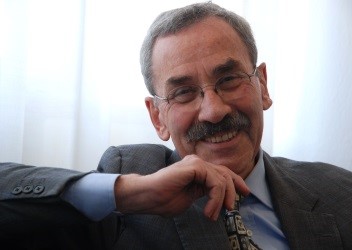 KEN KELLER, Ph.D., was director and resident professor of SAIS Europe from 2006 to 2014 and then Senior Adjunct Professor of Science and Technology Policy from 2015 to 2020.
KEN KELLER, Ph.D., was director and resident professor of SAIS Europe from 2006 to 2014 and then Senior Adjunct Professor of Science and Technology Policy from 2015 to 2020.
During his tenure as director of SAIS Europe, he placed a strong emphasis on strengthening the curriculum, encouraging and supporting faculty scholarly activities that cross disciplinary boundaries, and increasing opportunities for public policy dialogue.
Keller’s vision led to the establishment of the Bologna Institute for Policy Research (BIPR) and the transfer of the European and Eurasian Studies program’s core operation to Bologna. Moreover, he broadened the course offerings to include newly emerging issues in order to ensure the best possible education in international affairs. His own course, “Science, Technology and International Affairs”, brought together the worlds of science and policy.
Ken Keller realized that the quality of education and the atmosphere on campus depend on the faculty and their gift to challenge and inspire students. Throughout his directorship, he energetically pushed for SAIS to be able to recognize the academic achievements of SAIS professors resident in Bologna by providing the possibility of formal tenure appointments for them. Not surprisingly, therefore, the person holding the Kenneth H. Keller Professorship, which is designed for a faculty member whose area of scholarship blends history and international politics, requires that the person be a full-time faculty member at SAIS Europe with a tenured or tenure track appointment.
Murray B. Sachs Professorship
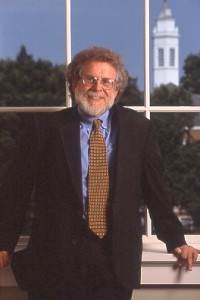 MURRAY B. SACHS served as the Massey Professor and Director of the Department of Biomedical Engineering from 1991 to 2007. He is also professor in the departments of Neuroscience and Otolaryngology-Head and Neck Surgery and a University Distinguished Service Professor at Johns Hopkins.
MURRAY B. SACHS served as the Massey Professor and Director of the Department of Biomedical Engineering from 1991 to 2007. He is also professor in the departments of Neuroscience and Otolaryngology-Head and Neck Surgery and a University Distinguished Service Professor at Johns Hopkins.
Dr. Sachs was introduced to research on the nervous system while studying electrical engineering and auditory physiology at the Massachusetts Institute of Technology, where he received his academic degrees. Following his graduate studies and a short diversion from the auditory research for which he is renowned, he joined the faculty of The Johns Hopkins University in 1970, the same year the Biomedical Engineering Department was formed.
At Johns Hopkins, Dr. Sachs and his colleagues set out to further understand how the brain processes sounds, including speech and other complex stimuli. Their integration of basic research and clinical problems led to the establishment of the Center for Hearing Sciences in 1986, which later became the Center for Hearing and Balance in 1991. Under Dr. Sachs’ direction, this center promoted interaction among scientists in the departments of Biomedical Engineering, Otolaryngology, and Neuroscience. Known as an inspiring teacher, Dr. Sachs trained many scientists who are leaders in auditory research and biomedical engineering today.
During Dr. Sachs’ tenure as director and chair of Biomedical Engineering, the department saw many important advances, including the establishment of the Whitaker Biomedical Institute in 1999, a joint venture between the School of Medicine and the Whiting School of Engineering; the building of Clark Hall in 2001 as a home for biomedical engineering on the Homewood campus; and the department’s U.S. News & World Report number one ranking from 1992 to the present.
Abel Wolman Professorship in Environmental Engineering
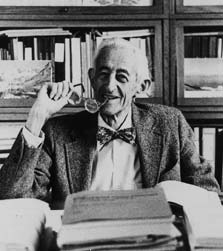 ABEL WOLMAN, A&S 1913, Engr 1915, one of Hopkins’ first engineering graduates, became a world-renowned water treatment expert whose career in civil engineering spanned more than 70 years. From 1914 to 1939 he was an engineer for the Maryland Health Department, for several years serving as chief engineer. He joined the Hopkins faculty in 1920 and, beginning in 1937, served full time in both the schools of Engineering and of Public Health. Dr. Wolman retired from teaching in 1962, but continued to work full time for more than 20 years, consulting with engineers and health organizations worldwide. Although he was the major architect of Baltimore’s water system, Dr. Wolman’s greatest interest was the essay writer environmental well-being of people in developing nations. By his late 80s, he had been to Geneva for the World Health Organization 40 times, had helped build water treatment systems in 40 countries, and had authored four books and hundreds of articles.
ABEL WOLMAN, A&S 1913, Engr 1915, one of Hopkins’ first engineering graduates, became a world-renowned water treatment expert whose career in civil engineering spanned more than 70 years. From 1914 to 1939 he was an engineer for the Maryland Health Department, for several years serving as chief engineer. He joined the Hopkins faculty in 1920 and, beginning in 1937, served full time in both the schools of Engineering and of Public Health. Dr. Wolman retired from teaching in 1962, but continued to work full time for more than 20 years, consulting with engineers and health organizations worldwide. Although he was the major architect of Baltimore’s water system, Dr. Wolman’s greatest interest was the essay writer environmental well-being of people in developing nations. By his late 80s, he had been to Geneva for the World Health Organization 40 times, had helped build water treatment systems in 40 countries, and had authored four books and hundreds of articles.
A member of the National Academies of Engineering and Science, Dr. Wolman was honored in 1960 with the Lasker Award for his “engineering skill and organizational genius,” which had done so much to improve the health of millions. In 1969, the university awarded him an honorary degree. Dr. Wolman, who died in 1989 at the age of 96, was named Marylander of the Century by the Baltimore Sun in 1999.
PREVIOUSLY HELD BY EDWARD J. BOUWER
NEW CHAIRHOLDER TO BE NAMED
Mark M. Ravitch, M.D. Endowed Professorship in Surgery
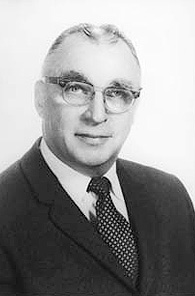 MARK M. RAVITCH, Med 1934, one of the founding fathers of modern pediatric surgery, recalled that as a young college graduate he was disappointed when his application to Harvard Medical School was rejected. He later realized that the decision was “the greatest good fortune that could have come to me.” After earning his medical degree at Hopkins, Dr. Ravitch completed a surgical residency with the renowned Alfred Blalock.
MARK M. RAVITCH, Med 1934, one of the founding fathers of modern pediatric surgery, recalled that as a young college graduate he was disappointed when his application to Harvard Medical School was rejected. He later realized that the decision was “the greatest good fortune that could have come to me.” After earning his medical degree at Hopkins, Dr. Ravitch completed a surgical residency with the renowned Alfred Blalock.
A prolific writer, Dr. Ravitch authored 453 papers, 101 book chapters, 22 books, and served as editor of nearly 20 medical journals. Dr. Ravitch was perhaps best known as an expert on the correction of chest-wall deformities in children and as a pioneer in the use of mechanical suturing in surgery. He is also remembered for his incisive mind, his intellectual integrity, and his demanding yet compassionate Socratic approach to teaching. In 1989, at the age of 78, Dr. Ravitch was still teaching students from his hospital bed. He died that year.
Chairholder to be named.
